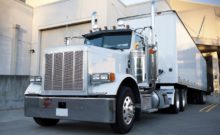Navistar, a maker of trucks in the United States, threw its weight behind legislation to speed up timelines to get self-driving trucks on the road. Toward the beginning of September, a bill was approved, without opposition, to expedite the use of self-driving automobiles throughout the country. The bill is meant for vehicles weighing under 10,000 pounds, and similar legislation is in the works for larger commercial vehicles, such as trucks.
Navistar Addresses The Senate
In a meeting with the Senate Commerce Committee, Troy Clarke, Chief Executive for Navistar, stated that it is important for the trucking industry to embrace and help develop emerging driving technologies. If the Senate passes legislation and regulations that clearly outline what is required to get self-driving trucks on the road, manufacturers, such as Navistar can start producing vehicles to move the trucking industry into the future.
Roadblocks
As it stands, there are still some major hurdles facing both law makers and executives in the technology industry. Statistic point to the fact that 94 percent of automobile accidents are caused by errors on the part of drivers. While self-driving vehicles could potentially reduce fatalities on the road by 35,000 annually, there are larger ramifications to consider. The most immediate struggle, which is confounding both legislators and truck manufacturers, is how self-driving trucks will impact current drivers in the industry. The Teamsters Union, which numbers 1.4 million members, has urged law makers to reject legislation for self-driving trucks, noting that until it is proven to be completely safe, new technology could endanger the lives of drivers.
The Jobs
The trucking industry currently employs over 3 million people, who are trained and qualified to haul freight all over the country. If upcoming legislation allows manufacturers, like Navistar, to put self-driving trucks on the road, then our economy becomes severely unbalanced. Opponents to self-driving trucks note that, despite the increased levels of safety provided by automated trucks, forcing 3 million people into unemployment is not a desired consequence. A balance must be struck to allow for the introduction of safer driving technologies, without making a large portion of this country’s workforce obsolete in one fell swoop.
As of yet, nothing has been finalized in devising proper legislation for the introduction of self-driving trucks, while not causing a spike in unemployment. Currently, there is a big push to introduce a bill by early October, which would allow Navistar, Tesla, Otto, and others to introduce self-driving trucks very soon.






